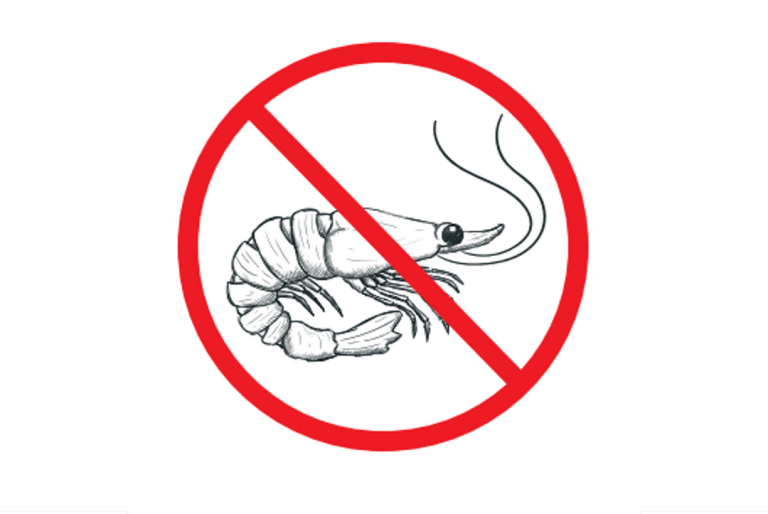
High levels of nutrients in food mean nothing if your body cannot absorb those nutrients!

Phytic acid (deprotonated phytate anion in the picture) is an antinutrient that interferes with the absorption of minerals from the diet.
Are you one of the millions who have switched to plant-based meat in search of a healthier lifestyle? Well, you might want to think twice before reaching for that veggie burger. A new study out of Sweden reveals that many popular meat substitutes are loaded with “antinutrients” that prevent the body from absorbing essential minerals like iron and zinc.
The research, conducted by a team from the Chalmers University of Technology, analyzed 44 different meat substitutes sold in Sweden, including soy and pea protein products, tempeh, and mycoproteins. What they found was shocking: these meatless alternatives were chock-full of phytates, compounds that inhibit the absorption of minerals in the body.
“Among these products, we saw a wide variation in nutritional content and how sustainable they can be from a health perspective. In general, the estimated absorption of iron and zinc from plant-based meat products was extremely low,” said lead author Cecilia Mayer Labba.
Phytates, which are found naturally in beans and cereals, are known to bind to essential minerals like iron and zinc, making them impossible to absorb in the intestine. And unfortunately, this problem is exacerbated when proteins are extracted for use in meat substitutes.
“Both iron and zinc also accumulate in protein extraction. This is why high levels are listed among the product’s ingredients, but the minerals are bound to phytates and cannot be absorbed and used by the body,” Mayer Labba explained.
This is a massive concern, especially for women. Recent data from The Lancet shows that 1.2 billion pre-menopausal women worldwide are deficient in iron, zinc, or folate. And in Europe and Central Asia, 68% of reproductive-age, non-pregnant women have micronutrient deficiencies.
“It is clear that when it comes to minerals in meat substitutes, the amount that is available for absorption by the body is a very important consideration. You cannot just look at the list of ingredients. Some of the products we studied are fortified with iron, but it is still inhibited by phytates,” said Ann-Sofie Sandberg, Professor of Food Technology at Chalmers.
So, what does this mean for those of us who have ditched meat for plant-based alternatives?
Try edible insects, an excellent source of bioavailable minerals!
Entoveganism is a plant-based vegan diet boosted by Entomophagy (human consumption of insects and other arthropods). Essentially, it’s plants + insects, and it is the ultimate sustainable superfood diet.
According to research published in the Journal of Agricultural and Food Chemistry, edible insects are a rich source of easily absorbable minerals. Especially grasshopper, cricket, and mealworms, are excellent sources of bioavailable minerals, particularly iron. The research, which compared the nutrient composition of four commonly eaten insects to sirloin beef, found that while cricket and sirloin beef had higher levels of iron, calcium, and manganese, the iron solubility was significantly higher in the insect samples.
But it’s not just iron that bugs have to offer. The study also found that grasshoppers, cricket, and mealworms contain significantly higher levels of bioavailable calcium, copper, magnesium, manganese, and zinc than sirloin.
A vegan diet lacks many nutrients that are abundant in insects. It has a real danger from a lack of B12, calcium, iron, omega fatty acids, and more, and insects fill in all those nutritional gaps!
Insects are a complete animal protein, while being the ultimate sustainable superfood.
- Insects are high in vitamin B12, calcium, iron, zinc, and other minerals, eliminating the need for vegan mineral supplements.
- Insects are an easy-to-digest protein with a complete amino profile, ensuring you can get enough to make gains, not just survive, and without having to eat massive amounts of beans or tofu every day.
- Insects are high in pre-biotic dietary fibers, which benefit a healthy gut microbiome and the gut-brain connection. (Almost everyone in the Western Countries eats too little fiber!)
A purely plant-based diet requires supplementation in all those areas to still be considered a healthy diet. Instead, an entovegan diet doesn’t need anything else because it is the full-spectrum solution.
So, the next time you’re looking for a new, sustainable, healthy food source, consider giving insects a try. Not only are they good for the environment, but they’re also packed with bioavailable minerals, protein, fiber, and fats that your body needs to stay healthy.
What should the meat substitute industry do to serve strictly vegan consumers?
It’s simple: the industry needs to step up and start thinking about the nutritional value of these products. As consumers, we deserve to know what we’re really putting into our bodies.
This revelation is particularly alarming when you consider the rise of plant-based diets in recent years. Many people have turned to meat substitutes as a way to reduce their carbon footprint and improve their health. But, if these products are lacking in essential nutrients, what’s the point?
It’s time for the plant-based industry to take a hard look at itself and start providing products that are not only better for the environment but also better for our bodies. After all, shouldn’t “health” be a top priority when it comes to our food choices?
It’s also worth noting that this is not the first time meat substitutes have been called out for their lack of nutritional value. A previous study conducted by the University of Sussex found that many meat-free burgers and sausages were high in salt and saturated fat.
So, what’s the solution? It’s simple: go back to basics. Instead of relying on processed meat substitutes, try incorporating more whole, unprocessed plant-based foods into your diet. These types of foods are not only more nutrient-dense, but they also have a lower environmental impact.
Some examples of whole, unprocessed plant-based foods high in iron and zinc include leafy green vegetables, nuts, seeds, and legumes. By including these foods in your diet, you can ensure that you’re getting the essential nutrients your body needs without worrying about phytates’ negative effects.
Another alternative is to opt for fortified meat substitutes enriched with minerals and vitamins to ensure that you get the required amount of nutrients your body needs.
In conclusion, this new study serves as a wake-up call for the plant-based industry. It’s time for them to step up and start providing products that are not only better for the environment but also better for our bodies. As consumers, we deserve to know what we’re really putting into our bodies, and we deserve to have access to plant-based options that are truly nutritious.
So next time you reach for that veggie burger, think twice. Your body (and the environment) will thank you.
Sources:
- Askew, Katy, “Meat substitutes contain ‘antinutrients’ that inhibit the absorption of iron and zinc: ‘The industry needs to think about the nutritional value of these products‘”, foodnavigator.com, 2022
- Gladys, O. Latunde-Dada & Wenge, Yang & Mayra Vera Aviles,”In Vitro Iron Availability from Insects and Sirloin Beef,” Journal of Agriculture and Food Chemistry, 2016
















